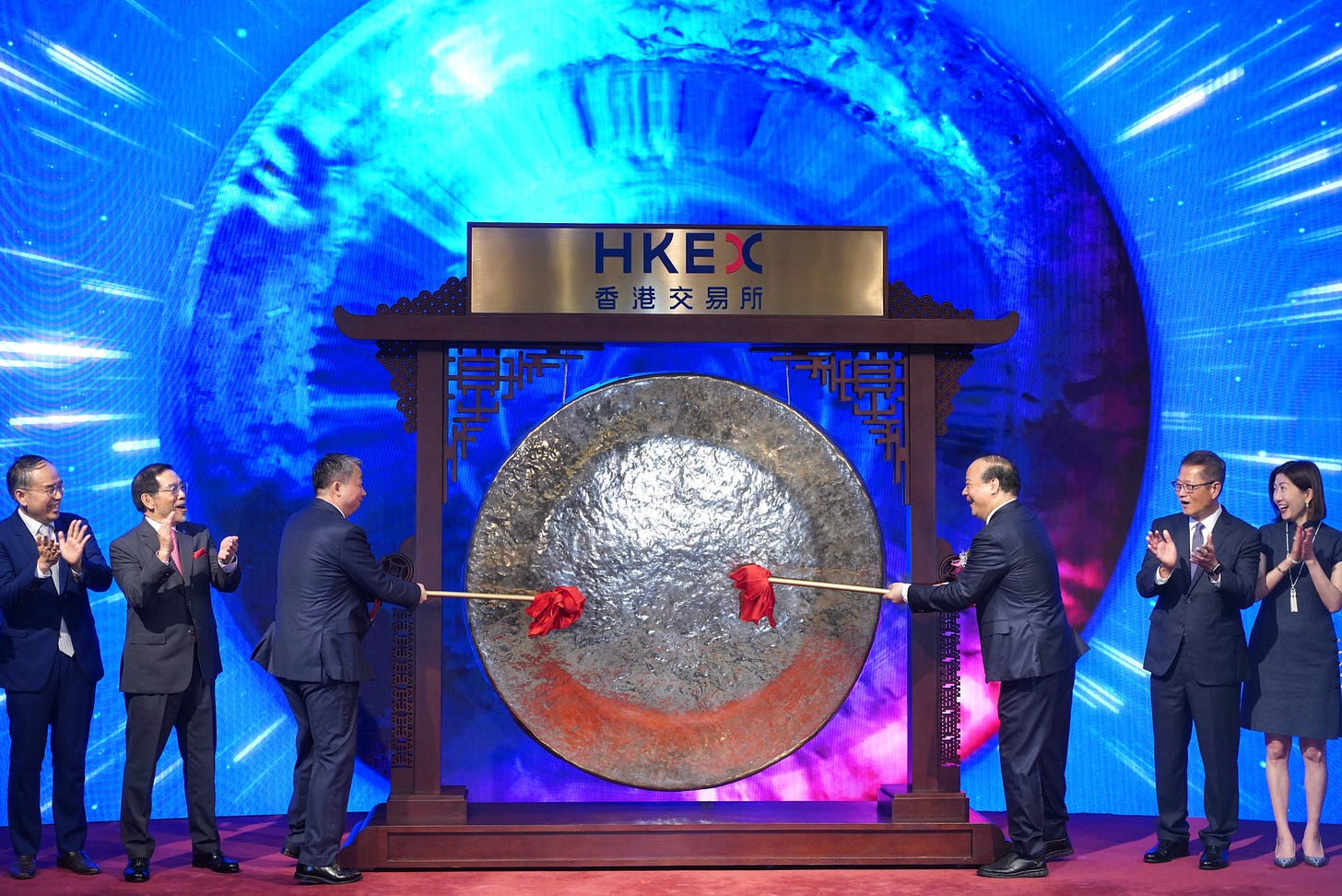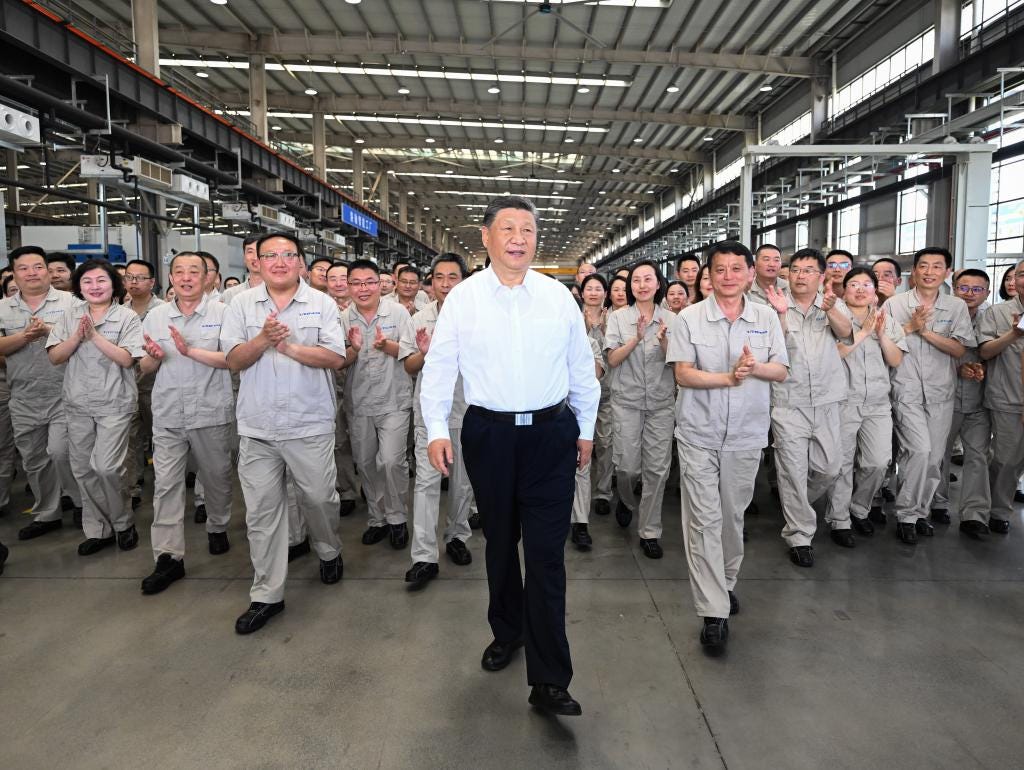China is the electric superpower
CATL raises billions, Xi's sweet potato economy, new cancer drug, China and Hamas, Hungary loyal to China not Trump, AI and chip madmen, trade war update, coffee, desperate doctors, economy is fine.
While Donald Trump doubles down on fossil fuels, the Chinese government and Chinese companies are aggressively pushing forward on the generation, storage, and use of electric energy. Today’s IPO of Chinese battery giant CATL is just the latest step in China’s march to global domination of the electric economy.
—Jeremy Goldkorn
This is The China Week, a succinct roundup and analysis of what happened in the People’s Republic in the last seven days. Please take out a paid subscription to get the whole newsletter, and thank you if you have already subscribed.
China took another step to dominance of the electric economy
Chinese battery giant CATL raises $4.6 billion

Battery giant CATL raised $4.6 billion on the Hong Kong Stock Exchange in the world's largest listing this year, boosting prospects for equity sales by Chinese companies.
CATL supplies almost 40% of all batteries used in electric vehicles (EVs) worldwide.
Further reading:
“Beijing dominates in solar, wind, electric cars, rail, and batteries,” says the Financial Times, in an article titled How we made it: will China be the first electrostate?
The European Council on Foreign Relations: Electric shock: The Chinese threat to Europe’s industrial heartland
Xi Jinping knows what he’s got
Sweet potato economy, grown in China

Xi Jinping has been visiting factories and cultural sites in the ancient city of Luoyang, Henan Province. The propaganda around the visit is centered on Chinese resilience and self-reliance, and on the country’s long history.
There seems to be a new buzzword connected with the visit: The “sweet potato economy.” It seems similar to “dual circulation,” a term proposed by the Xi Jinping government in 2020 to urge China to make its economy more self-reliant, while also remaining open to and taking advantage of international trade and investment.
The “sweet potato economy” has been the subject of some attention from the Communist Party newspaper, the People’s Daily, as explained by Manoj Kewalramani:
…Xi Jinping’s theory, which he expounded during his time in Zhejiang:
”The vines of sweet potatoes extend in all directions, in order to absorb more sunlight, rain, and nutrients, but its tubers are always at the base of the roots. The extension and expansion of the vines ultimately serve to make the tubers grow thicker and larger.”
In other Chinese Communist Party news, also summarized by Manoj Kewalramani:
Biotech
New Chinese cancer drug
Pfizer has licensed a new Chinese cancer drug for $1.25 billion from 3SBio, “a leading Chinese biopharmaceutical company, for the development, manufacturing and commercialization of [a drug] currently undergoing several clinical trials in China for non-small cell lung cancer, metastatic colorectal cancer, and gynecological tumors,” according to a press release.
China’s new ambassador to Israel
Hamas “atrocities” are “unforgivable”
China’s ambassador to Israel Xiao Junzheng 肖军正 “made his first TV appearance since arriving in Israel six months ago,” writes Tuvia Gering:
Xiao said that the “atrocities committed by Hamas are inhumane, unforgivable, and outrageous,” and that “China opposes and condemns what Hamas did on the 7th of October—this is very clear.”
Gering notes that this statement “marks the first on-the-record, direct condemnation by a Chinese official of Hamas’s October 7 massacre.”
Money talks
Hungary is more loyal to China than to Trump
Would Hungary decouple from China if Trump asked that of his buddy Viktor Orbán, the strongman prime minister of Hungary?


